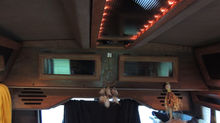Origin of 'Riddle'
- Diane Draper
- Mar 14, 2016
- 3 min read

"People have probably played with words as long as language has existed." - David Crystal
The Riddle
Who doesn't like a good brain tease?
"Riddle," however, did not have its modern meaning until the 10th century, or current spelling until the 15th.
Originally rædels (reah-dels), the word meant a 'reading' or opinion' about something, broadening later to an 'interpretation' of something.
Starting as a simple combination of the word for 'read' and an -els ending, I think it's interesting that it came to represent a phrase or passage that can't be interpreted at face value.
The word started confusing people during the Middle Ages as redels because 's' was being used for plurality more readily; therefore, it dropped the 's' in the 15th century to become the word we know today.
Where am I getting this information?
One of the required texts for my EN415 class was David Crystal's "The Story of English in 100 Words." This book is based on English etymology, not historical origin of the concepts themselves, so even when the word did not yet exist in English there were examples of it. One of the most famous is the riddle of the Sphinx:
Which creature in the morning goes on four legs, at mid-day on two, and in the evening upon three, and the more legs it has, the weaker it be?
Most know the answer is Man: crawling on four as an infant, walking on two legs as an adult, and using a cane as an elder.
I learned through Crystal about a collection of Old English riddles in an Anglo-Saxon manuscipt, the Exeter Book, compiled in the late 10th century, which is apparently the oldest and largest of only four surviving Anglo Saxon books on poetry and riddles. The book earned its name when it was given to the Exeter Cathedral in 975 by its first Biship, Leofric.
The Britannica site offers more in-depth information if you're interested, click here.
It contains 96 riddles, but I love the fact that even back then there were 'dirty jokes.' Crystal says that one riddle in the Exeter book starts, "Something wondrous hangs by a man's thigh..."
Answer: a key
Get your mind out of the gutter.
Back to the topic at hand, the English word 'riddle.' Still mainly being used as a noun in the 14th century, it started being applied to people inferring that they were difficult to understand or mysterious. "She's a riddle..." is an expression still somewhat used today, but not quite as much. It wasn't until the 16th century that 'riddle' became a verb with the phrase "Riddle me a riddle."
Crystal shares an interesting nursery rhyme:
"Riddle me, riddle me, ree;
A little man in a tree;
A stick in his hand,
A stone in his throat,
If you tell me this riddle
I'll give you a groat."
The origin of this word does not begin to cover the extent to which people love playing with words. I know as a fantasy author that making up words is part of the fun, but basing fictional language off of structured grammar with a grounded sense of etymology makes it easier to understand for readers and ourselves.
One of my English professors constantly reiterated that English is a mutt-language, but I believe its flexibility and adaptability is one of the beautiful things about it. It solidifies the fact that language is fluid and alive, able to connect people or alienate them.
Other words included in Crystal's book:
mead
merry
gaggle
bodgery
fopdoodle
If you're curious about any of these words, I'm thinking of doing another one in two weeks. Let me know which one you would prefer!
So, it's only natural to end with a riddle:
"I saw a creature in the cities of men who feeds the cattle. It has many teeth. Its beak is useful. It goes pointing downward. It plunders gently and returns home. It searches through the slopes, seeks herbs. Always it finds those which are not firm. It leaves the fair ones fixed by their roots, quietly standing in their station, gleaming brightly, blowing and growing." - the Exeter book, translated by R.K. Gordon
Any ideas? Let me know what you think the answer is!














Comments